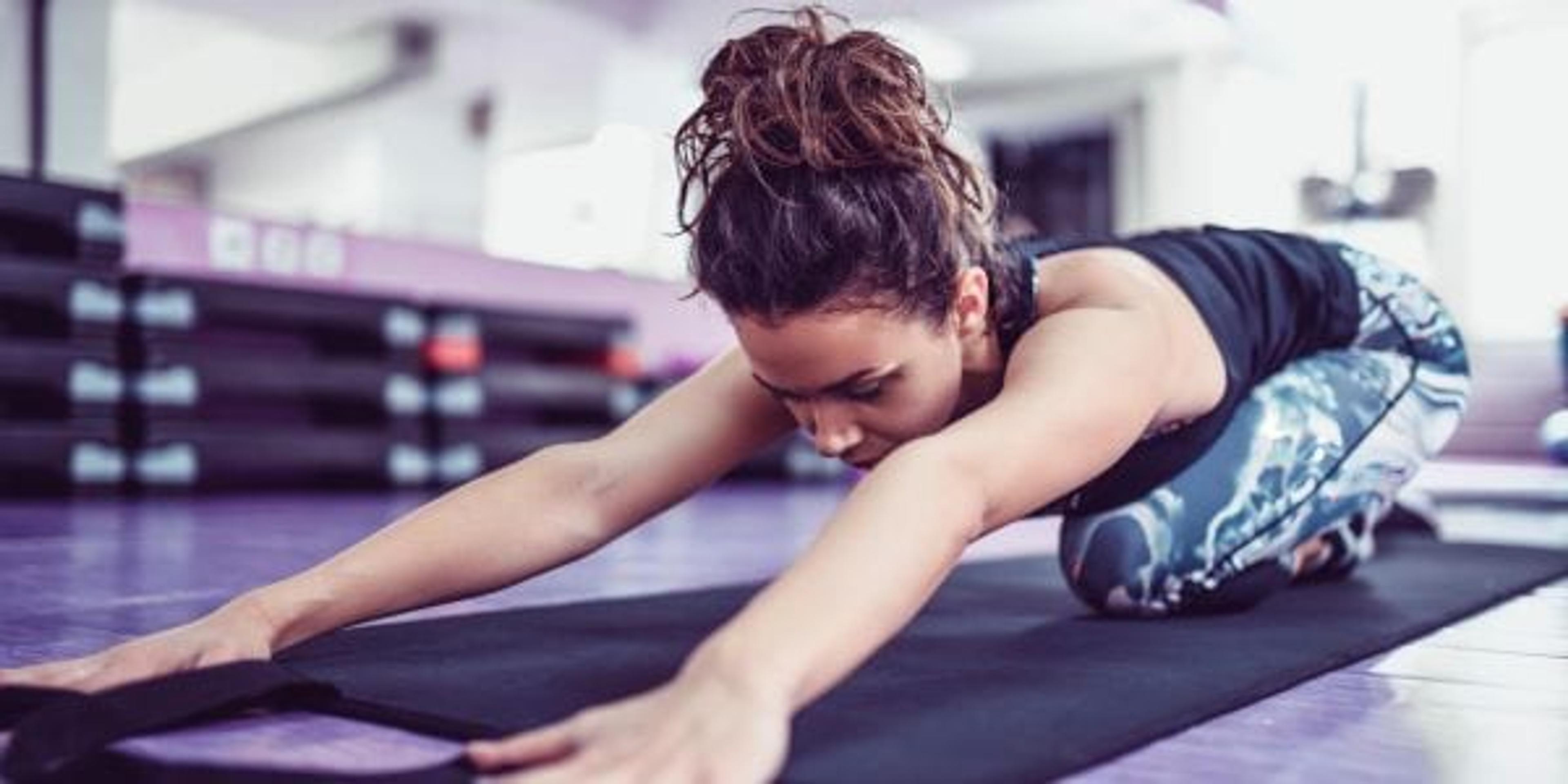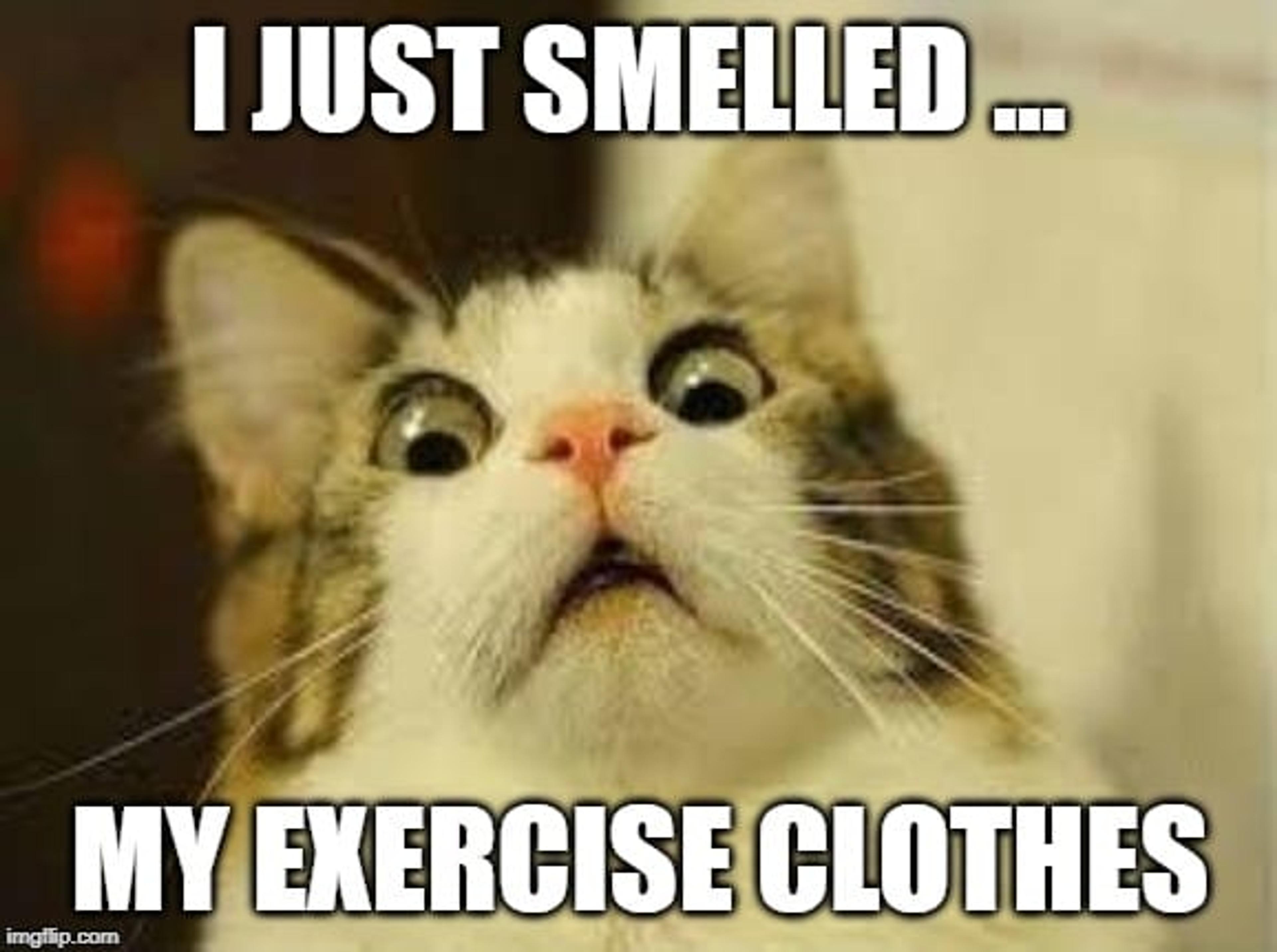Exorcise Funky Odors from Your Exercise Clothes

Maiya Hayes
| 3 min read

Exercising has many wonderful benefits. It can improve your overall health. It can increase your self-confidence. And it can make you feel less ashamed of eating an entire pizza by yourself. #DontJudgeMe
But exercising does have one drawback: The clothes you wear while working out usually smell awful after you’re done — thanks to a buildup of sweat and bacteria from your body.
Fortunately, there are ways to fight the funk.

For starters, let’s say you’ve just finished working out and you don’t have time to change before running an errand. Simply spritz your clothes with a fabric freshener like Febreze, and you’ll be fine for an hour or two.
And to remove the unpleasant odors from your fitness gear, you can try these suggestions:
After you’ve exercised …
- Don’t procrastinate. Wash your workout clothes as soon as possible to prevent sweat and bacteria from settling into the fabric.
- Be afraid of the dark. Under the right conditions, it’s easy for mold and mildew to set up shop on your workout gear. So if you can’t wash your clothes right away, make sure you air dry high-performance fabrics before storing them anywhere. Don’t leave them in your gym bag, hamper or an unlit room when they’re damp.
- Sequester your fitness gear. Odors can transfer between clothes. So to avoid spreading stinky smells, designate one laundry basket or hamper for your workout clothes and another for your other clothes.
Before you start washing your clothes …
- Play that funky music. Laundry duties aren’t fun. But if you listen to a bunch of awesome funk songs while sorting and washing your funky clothes, you might enjoy the process a little more.
- Turn your clothes inside out. The sweat, oils and bacteria from your body accumulate on the inside of your clothes. So turning them inside out before you wash them will help guarantee that the soiled parts are cleaned sufficiently.
- Pre-treat your clothes: Pour a modest amount of white distilled vinegar or a lemon’s worth of juice onto the odorous parts of your clothes. Or you can gently scrub your clothes with baking soda.
To clean high-performance fabrics with care …
- Use an odor-fighting detergent. There are plenty of options available to help you clean and deodorize your workout gear. You can also find more suggestions here and here. And when you wash your clothes, be sure to only use the recommended amount of detergent.
- Don’t use fabric softener: Avoid using fabric softener because it coats workout clothes and inhibits their wicking capabilities.
- Wash your clothes in cold or warm water. Hot water can damage fitness gear. So stick to warm or cold water for your loads.
- Air dry your clothes: Heat from dryers can shrink or damage high-performance fabrics. So it’s best to air dry your clothes, or if you must use a dryer, use the lowest heat available.
We hope these tips will restore your workout clothes to their rightfully fresh scent.

If you enjoyed this post, you might also like:
Photo credit: Aleksandar Georgiev





